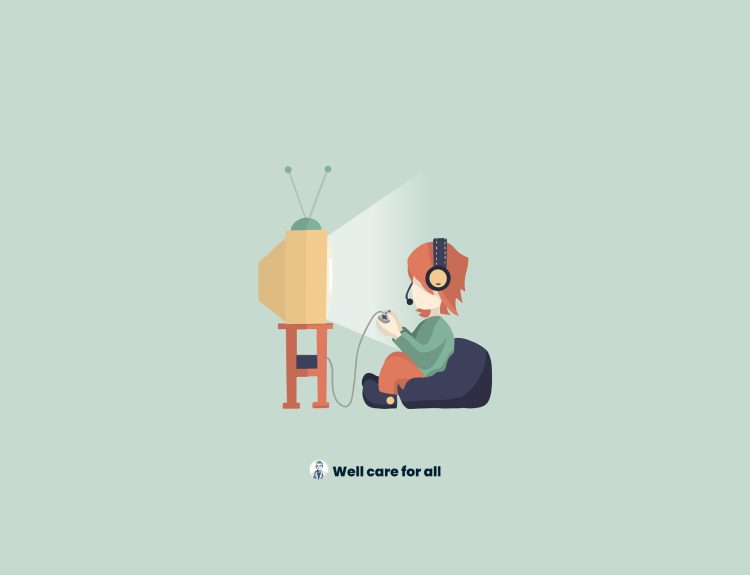
Striking a balance between personal life responsibilities and education can be challenging, especially for an adult student. Between late-night assignments, work obligations, and social distractions, getting proper sleep as a student often takes a back seat. However, consistent, quality sleep is a pillar of mental clarity and physical health—two things you can’t afford to compromise on during your student journey. This article will explore simple, science-backed sleep habits tailored for adult students. Whether returning to school after a hiatus or juggling full-time work and part-time studies, these tips will help you sleep smarter and perform better in every area of life.
Understand the Importance of Sleep for Adult Learners
Before discussing habits, it’s crucial to understand why sleep is essential for students, especially adults. Studies indicate that while we sleep, the brain processes and consolidates memories recharges cognitive functions, and helps regulate emotional balance—all key components for successful learning and academic performance.
When you’re sleep-deprived, concentration drops, decision-making falters, and your mood is more likely to spiral—none of which are helpful when you’re prepping for exams or sitting through lectures after a full day’s work.
Create a Consistent Sleep-Wake Schedule
Consistency is key to developing better sleep habits for students. Aim to sleep and wake up regularly and at the same time, even on weekends.
Why it works: A regular sleep schedule helps regulate your internal body clock and makes falling asleep and waking up naturally easier.
Pro tip: Use a sleep-tracking app to monitor your patterns and make minor adjustments.
Design a Sleep-Friendly Environment
Your bedroom should feel like a sanctuary, not a second classroom. Creating a calming space helps signal your brain that it’s time to wind down.
Key tips for a better sleep environment:
- Darkness: Use blackout curtains or eye mask to decrease light exposure.
- Noise control: Use white noise machines or earplugs to reduce distractions.
- Cool temperature: Set your thermostat between 60-67°F (15-19°C).
- Minimal tech: Keep laptops, phones, and tablets out of bed.
Limit Screen Time Before Bed
Scrolling through your phone or finishing a last-minute paper late at night might seem harmless, but blue light exposure disrupts melatonin production—a hormone essential for sleep.
Better habit: Set a tech curfew 60-90 minutes before bed. Instead, try reading a physical book or doing a short journaling session to decompress.
Mind Your Caffeine and Late-Night Snacks
Many students use caffeine to power through night study sessions, but late-day caffeine can keep you wired long after the books are closed. The same goes for heavy, sugary, or spicy foods close to bedtime—they can disrupt digestion and delay sleep.
Smart swaps:
- Switch to herbal teas like peppermint or chamomile after 3 PM.
- Opt for light snacks like yogurt, almonds, or bananas if you’re hungry before bed.
Use Naps Wisely
If done right, short naps can be a game-changer. However, avoid napping too late in the day or for too long, as they can interfere with nighttime sleep.
Golden rule: Keep naps to 20–30 minutes and aim to take them before 3 PM.
Stay Active During the Day
Physical activity, even simple activities and in small amounts, can significantly increase the quality of sleep. It doesn’t have to be an entire gym session—taking a brisk walk, doing yoga, or even stretching can make a difference.
Why it matters: Exercise helps reduce anxiety, tire the body naturally, and regulate circadian rhythm.
Practice Relaxation Techniques
Stress is one of the biggest enemies of sleep, especially for adult students juggling multiple roles. Simple mindfulness techniques can calm your mind and prepare your body for rest.
Try these methods:
- Deep breathing (inhale for 4, hold for 4, exhale for 4)
- Progressive muscle relaxation
- Guided meditations or sleep podcasts
Avoid All-Nighters (They Do More Harm Than Good)
Staying up all night may seem like a college badge of honor, but research indicates it is counterproductive. Sleep-deprived brains retain less information and process data more slowly.
A more effective approach is todivide study sessions into focused blocks throughout the week and utilize techniques like the Pomodoro Technique for better time management.
Seek Help if Sleep Problems Persist
Don’t ignore the issue if you’ve tried healthy habits and still find yourself tossing and turning. Chronic sleep problems could be a sign of insomnia, anxiety, or other underlying conditions.
Consider:
- Speaking to a healthcare provider or sleep specialist
- Journaling your sleep habits to identify patterns
- Using cognitive behavioral therapy for insomnia (CBT-I)
FAQs About Better Sleep For Adult students
Q: How many hours of sleep do adult students need?
A: Most adults need 7–9 hours of sleep per night. Student life might tempt you to cut back, but anything under 6 hours regularly can hurt your memory, focus, and health.
Q: Can I catch up on sleep over the weekend?
A: You can recover some sleep debt, but irregular weekend sleep disrupts your body clock. It’s better to aim for consistent sleep every day.
Q: What’s the best time for me to go to bed as a student?
A: Ideally, between 10 PM and midnight. However, the key is consistency. Choose a time you can stick to daily, even on weekends.
Q: Are sleep-tracking apps useful?
A: Yes, they can help identify trends and improve awareness of your habits—but don’t obsess over the data. Use it as a general guide.
Q: Is it okay to study in bed?
A: Try not to. Associating your bed with work can make it harder to fall asleep. Study at a desk or in a different part of your room instead.
Conclusion
Getting proper sleep as a student doesn’t have to be a luxury—with just a few intentional changes, it can be part of your daily routine. From managing your environment to practicing mindfulness, these simple sleep habits for students are realistic and practical.
The payoff? Sharper focus, better grades, improved mental health, and the energy to fully enjoy your academic journey.
So tonight, skip the midnight scroll, sip some calming tea, and set yourself up for the deep, restorative rest your future self will thank you for.



